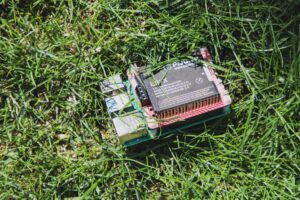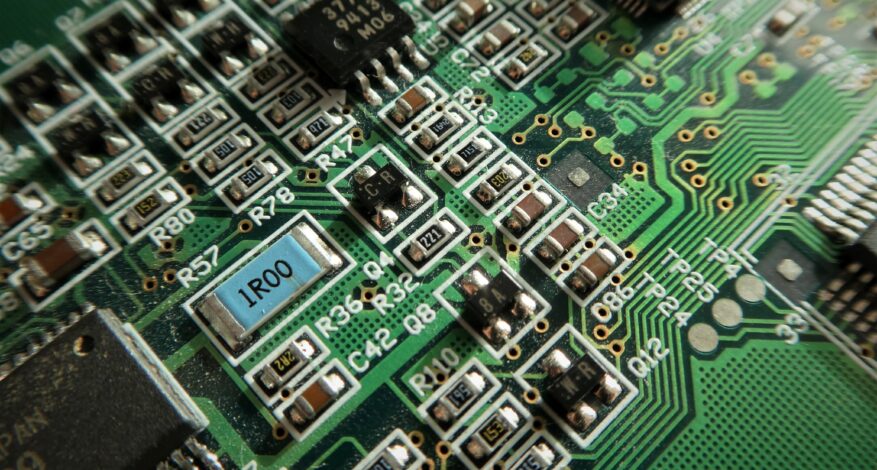HOT 5 E-WASTE BUSINESSES THAT ARE CHANGING THE WORLD
The world’s largest and robustly growing industry is the electronics industry. As new and faster technological innovations keep coming in, consumer demand for recent products increases. This has resulted in a shorter lifespan of devices and a thriving e-waste problem. According to Global E-Waste Monitor, consumers all around the world discard 54 million tonnes of electronics. Out of this, only 15-20% is recycled sustainably. Due to the current pandemic, the situation will only aggravate with higher demand for devices. If action is not taken soon, the global e-waste can amount to 100 million tonnes by 2050.
Why do we need unique solutions for E-Waste?
 First things first, e-waste involves electronics that are not wanted or not useful. It can range from heavy industry appliances such as IT servers, laptop computers, printers to insignificant home devices such as a TV remote. Those that are in better conditions end up-sold to companies that offer cash for used laptops, or e-waste recyclers. In all, the waste generated is massive. When there is no proper channel for electronic waste, they either end up in landfills. Unlike other waste, e-waste does not degrade at all. If you were to look at a dumpster full of e-waste, you would find no sign of natural moss/grass growing over it.
First things first, e-waste involves electronics that are not wanted or not useful. It can range from heavy industry appliances such as IT servers, laptop computers, printers to insignificant home devices such as a TV remote. Those that are in better conditions end up-sold to companies that offer cash for used laptops, or e-waste recyclers. In all, the waste generated is massive. When there is no proper channel for electronic waste, they either end up in landfills. Unlike other waste, e-waste does not degrade at all. If you were to look at a dumpster full of e-waste, you would find no sign of natural moss/grass growing over it.
A primary mobile circuit has 16 different metals in it. Usually, a few metals will get extracted in an informal market, and the rest will end up in a landfill. Soon, hazardous chemicals like mercury seep deep into the soil, which gets damaged permanently. The leaching not only happens to the soil but to food as well. With an increase in the amount of e-waste, the contamination has reached oceans with gaseous and liquid toxins that are not visible to the naked eye. Hence, unique business solutions are a dire need in this era.
Five E-Waste businesses that are leading the change
Here are five start-ups and scaleups that are striving to develop sustainable solutions for E-waste management.
A Canadian start-up EnviroLeach Technologies, is on its toes on developing a recycling process that is eco-friendly for used printed circuit boards (PCBs). The idea came from environmental concerns that arose through traditional disposal methods and a surge in toxicity. Printed Circuit boards constitute hazardous metals that are hard to extract. Hence, EnviroLeach’s technology can remove target metals such as lead, aluminum, and copper from PCBs. For extraction, it uses a hydrometallurgical process that decreases carbon dioxide emissions. Additionally, electronic processing is done at a suitable temperature and pressure for no excess waste.
Dismantling and procurement of e-waste are crucial for sustainable recycling. A popper channel enables quick and systematic processing of e-waste. Many rare earth elements, such as lanthanum with other metals such as copper, lead, tin, etc., are of significant market value. Adatte, an Indian start-up, develops innovative technology to segregate and recycle e-waste. It uses pyrometallurgy and hydrometallurgy for dismantling PCBs. The whole process is automated other than material movement. Effluents and toxic waste fumes produced while recycling is treated using zero liquid discharge method (ZLD) and ultraviolet system and scrubbers.
Taking out precious metals such as gold and silver from e-waste is considered an excellent way to take off virgin mining pressure. On the same lines, a Belgian start-up Recy-Call offers metal extraction and e-waste recycling solutions to underdeveloped countries such as Africa. Many emerging regions have a massive urban mining potential that can benefit the entire community. Hence, Recy-Call procures discarded electronics and recycles or dismantles them for further use. This creates a positive environment as well as social impact. Low-income nations benefit from Recy-Call’s eco-friendly mining strategy by an increase in income and sustainable job creation.
Massive investment in terms of hardware is required for data storage in companies. As a result, many organizations are switching to cloud storage. It is a complex process to get the physical shutdown and system destruction at a decommissioned data center. A US-based start-up, eRecyc, provides sustainable and safe data decommissioning and demolition from on-site data centers. The process involves systematic disconnection of IT hardware assets from network and power. After which, hard drives are sanitized and shred as per the industry standards. On the other hand, eRecyc also provides redeployment and marketing for recovered assets.
Refurbishing has significant potential in e-waste recycling. It involves identifying working components in discarded electronics and using them in new items. Refurbishing not only reduces carbon footprint but also offers an affordable option to many consumers. A British startup Recono.me refurbishes the discarded or unwanted electronic appliances and IT equipment. Before refurbishing, all the data is wiped out from the device at the point of collection. After which, Recono.me sells them at a lower price to reduce e-waste from circulating. In all, it is a sustainable solution for a greener planet.
All the mentioned businesses are taking the recycling world by storm. One may doubt that the profit margin may below. The truth is away from this. The e-waste industry has the potential to earn significant profits if done sustainably and practically.
This interesting article was written by Betty Williams, a student working as a freelance blogger. She loves to explore ideas related to marketing concepts, brands, and psychology. When not on campus, she is on her laptop punching keys to get her writing gigs going.


